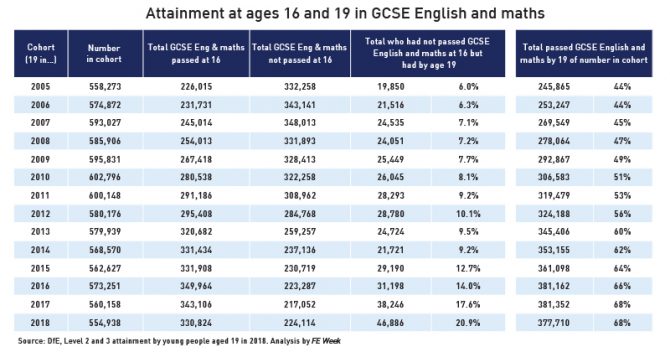Providers will be forced to log apprentices’ off-the-job training hours from September, following high-profile concern about non-compliance with the unpopular rule going unchallenged.
A new data field for individual learner records (ILR) is being introduced for 2019/20 to “provide information about the quantum of off-the-job training delivered” and “help demonstrate compliance with the funding rules”, the Education and Skills Funding Agency revealed today.
It replaces the “optional” field for recording how many off-the-job training hours had been completed on a monthly basis, which was introduced to the ILR in 2018/19. The new field is “mandatory” and requires providers to record “planned” hours.
In March the National Audit Office said in its apprenticeships progress report that the ESFA, in summer 2018, had just one “red risk” associated with delivery of the programme – that apprentices do not spend at least 20 per cent of their time doing off-the-job training.
The government’s spending watchdog warned that the agency has “limited assurance” in knowing whether the policy is being abided by, as even though audits may identify problems, there is “scope for providers to under-deliver for some time without this being picked up”.
“This is an important gap in oversight, because the provider continues to be paid as long as the apprentice remains on the programme,” its report said.
Meg Hillier, the chair of the influential Public Accounts Committee, added that it was “concerning that the ESFA can’t be sure that apprentices are spending enough time on off-the-job training”.
The new mandatory ILR field has been introduced to mitigate the problem.
“For apprenticeships this field collects the planned off-the-job training hours (as defined in the funding rules) for the individual apprentice in the academic year by the training provider, sub-contracted training providers and the employer,” the rules now state.
Guidance on the new field explains that it should record the “planned off-the-job training hours for the individual apprentice over the full apprenticeship (excluding the end point assessment period) by the training provider, sub-contracted training providers and the employer”.
The information in the ILR may be “subject to compliance checks during the academic year and must therefore be supported by the evidence requirements set out in the funding rules for off the job training”.
“It is important that this field should accurately reflect the planned amount of off-the-job training undertaken by the apprentice,” the guidance adds.
“Any changes to the values entered in this field during the apprenticeship may be subject to further compliance checks.”
The policy, which requires apprentices to spend a fifth of their week on activities related to their course that are different to their normal working duties, has split the FE sector since its introduction in 2015.
Many have complained that the rule is the single biggest barrier to apprenticeship recruitment, but others view it as a vital part of the apprentices’ development.
The new mandatory ILR field has not been welcomed by the Association of Employment and Learning Providers, whose chief executive Mark Dawe said: “The job is hard enough at the moment without ladling on more meaningless bureaucracy which puts a lot of employers off.
“Simply recording the number of hours will tell you absolutely nothing about the quality of the apprentice’s learning experience. Instead the matter should be left in Ofsted’s domain with inspectors read to look at what is being gained both on and off the job in terms of knowledge, skills and behaviours.”
He added: “Once again the ESFA are ignoring MPs’ recommendations by blurring the lines on responsibilities when Ofsted should be the sole custodians of quality.”


